Thoughts on Forced Migration in the Americas
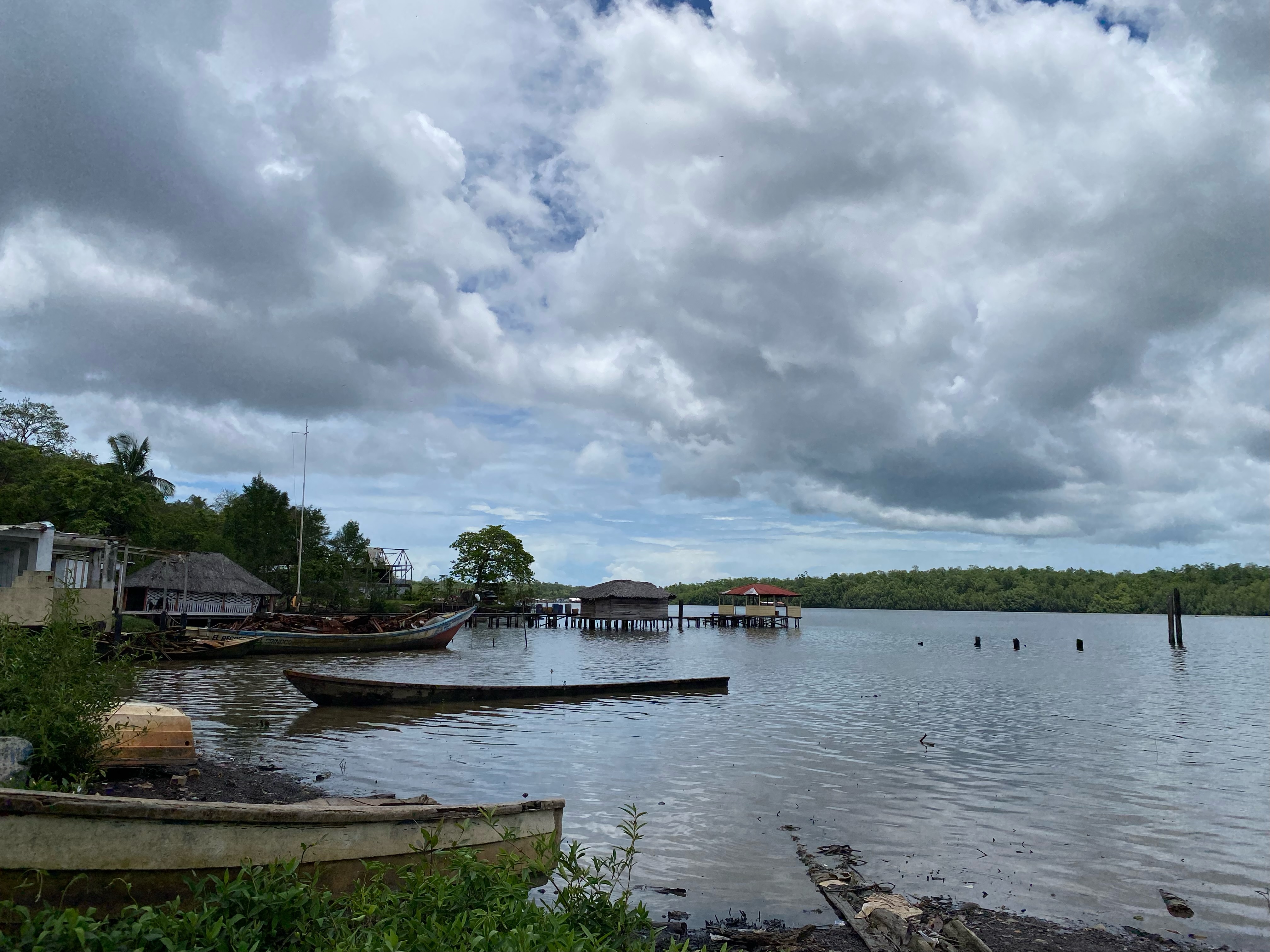
Delta Amacuro, Venezuela, April 2023
Last week, as you may remember, I participated in work meetings where we discussed planning for our work in 2025. One major topic we need to address is the forced migration of millions across the American continent. To illustrate the scale and gravity of this issue, I thought it would be helpful to highlight the following points:
Forced Migration in the Americas
Forced migration has been a significant, often tragic, component of the history of the Americas. From the transatlantic slave trade to modern-day displacement due to conflict and environmental disasters, forced migration shapes the demographics, cultures, and societies of the continent.
The Transatlantic Slave Trade
One of the most brutal forms of forced migration in the Americas was the transatlantic slave trade. Between the 16th and 19th centuries, millions of Africans were forcibly taken from their homelands and transported across the Atlantic to work in plantations, mines, and homes across the Americas. The Middle Passage, as it was known, was notorious for its inhumane conditions, with high mortality rates due to disease, malnutrition, and abuse.
The impact of the transatlantic slave trade was profound, altering the social and economic landscapes of the Americas. It entrenched racial hierarchies and systems of oppression that continue to affect societies today. Nevertheless, the cultural contributions of African slaves are a testament to their resilience and have significantly enriched the cultural fabric of the Americas.
Indigenous Displacement
Indigenous populations across the Americas have also experienced significant forced migrations. The arrival of European settlers led to the widespread displacement of Native American, First Nations, and other indigenous communities. In the United States, policies such as the Indian Removal Act of 1830 resulted in the infamous Trail of Tears, where thousands of Native Americans were forced to relocate from their ancestral lands to designated "Indian Territory."
In Central and South America, Spanish and Portuguese colonisers similarly displaced indigenous populations, often through violent means. The legacy of these displacements is still evident today, with many indigenous groups continuing to fight for land rights and cultural preservation.
Contemporary Issues/Conflict-Induced Displacement
In the modern era, forced migration in the Americas often results from conflict. Countries like Colombia have experienced prolonged internal conflicts that have displaced millions of people. The Colombian civil war, involving government forces, paramilitaries, and guerrilla groups like the FARC, has forced countless families to flee their homes, seeking safety within the country or as refugees abroad.
Similarly, political instability and violence in Central American countries such as El Salvador, Honduras, and Guatemala have driven large numbers of people to migrate, often undertaking perilous journeys to seek asylum in the United States. The phenomenon of "caravans" of migrants travelling together for safety and solidarity has captured international attention, highlighting the desperation and determination of those fleeing violence and poverty.
Environmental Displacement
Climate change and environmental disasters are increasingly contributing to forced migration in the Americas. Hurricanes, floods, and droughts have devastating effects, particularly on vulnerable communities. The Caribbean and Central American regions are notably susceptible to such events, with hurricanes regularly displacing thousands of people.
Additionally, slow-onset environmental changes, such as desertification and sea-level rise, threaten livelihoods and habitats, prompting migration. For instance, coastal communities in places like the Caribbean islands and the Gulf Coast of the United States face existential threats from rising sea levels, leading to both temporary and permanent displacement.
The Response to Forced Migration
Addressing forced migration in the Americas requires a multifaceted approach. Governments, international organisations, and civil society must work collaboratively to provide humanitarian assistance, ensure the protection of human rights, and create pathways for legal migration.
Moreover, addressing the root causes of forced migration is crucial. This involves promoting peace and stability, fostering economic development, and tackling climate change. For indigenous communities, this also means respecting land rights and cultural autonomy.
In conclusion, it is fair to state that forced migration in the Americas is a complex issue rooted in historical injustices and exacerbated by contemporary challenges. Understanding its causes and consequences is essential for developing effective and compassionate responses. By acknowledging the resilience of those who have been displaced and addressing the systemic issues that force people to leave their homes, the Americas can move towards a more just and equitable future.
I have become Portuguese
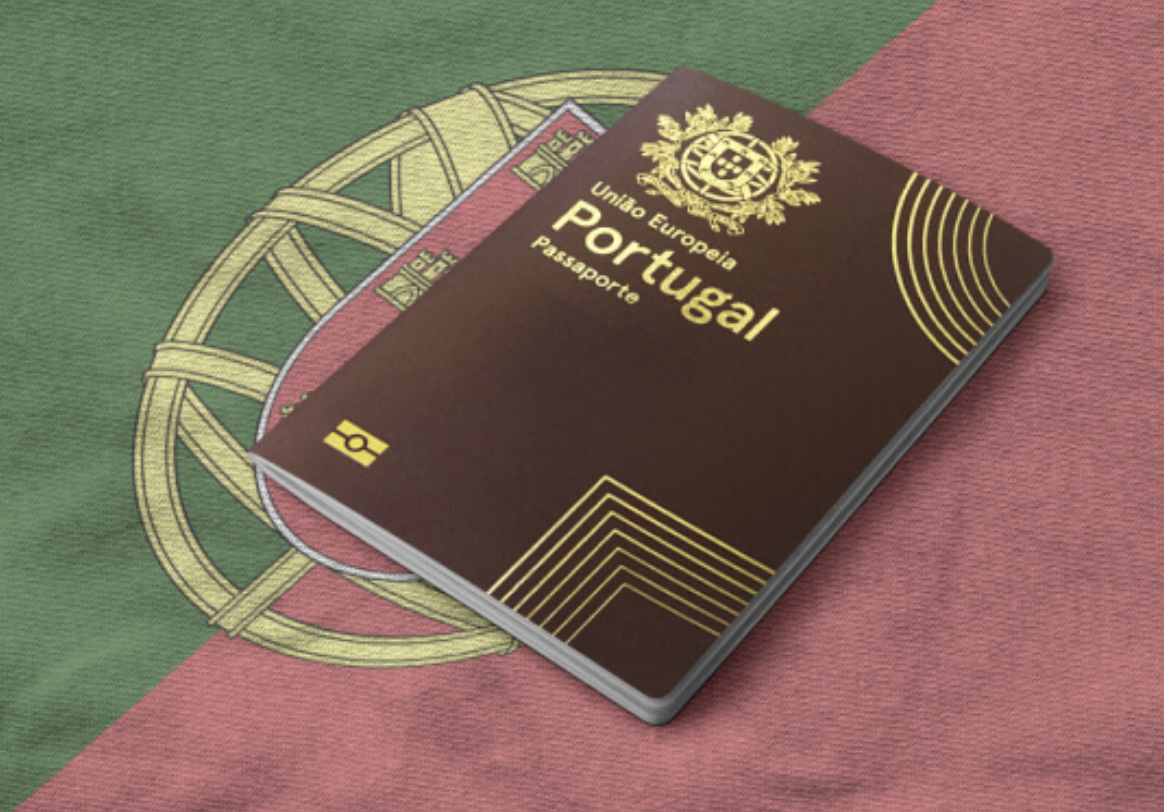
Contemporary design of a Portuguese passport
Some of you may remember that eight years ago, I decided to make Portugal my second home. As my life has turned into a never-ending journey involving countless travels around the world, it is somewhat difficult to define what home is in my case. Having written this, I am very happy that Portugal has become, along with Poland, my European base, or homeland, if you will. As far as I feel about it, I treat Portugal and Poland as my emotional homes. Both of these places are dear to me, and I visit them frequently. You will therefore not be surprised to read how overjoyed I was last week. Finally, after years of waiting, I received confirmation that I have become a naturalised Portuguese citizen. My Portuguese birth certificate has been issued, which confirms that I am Portuguese and allows me to apply for a Portuguese ID card and a passport (which I will be doing here at the Portuguese Consulate in Caracas).
So this time, I am writing to you as a proud Portuguese/Polish dual national, celebrating with joy!
Travelling to Panama
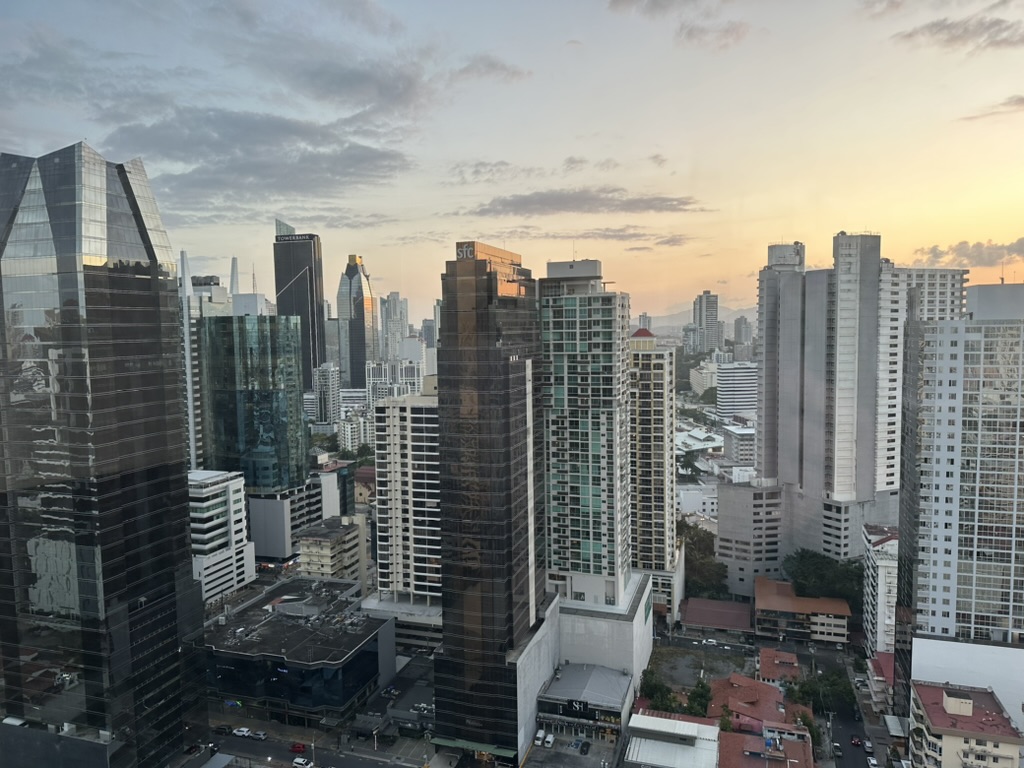
Centre of Panama City, Panama, March 2024
I am travelling to Panama tomorrow. It will be a short visit for work. During my four days in the country, I will be meeting with colleagues from my organisation to discuss our operational plans for 2024 (for the LAC region). In the evenings, I will be catching up with old friends who are based in Panama City. I am really looking forward to the trip, however short it may be!
Back to work!
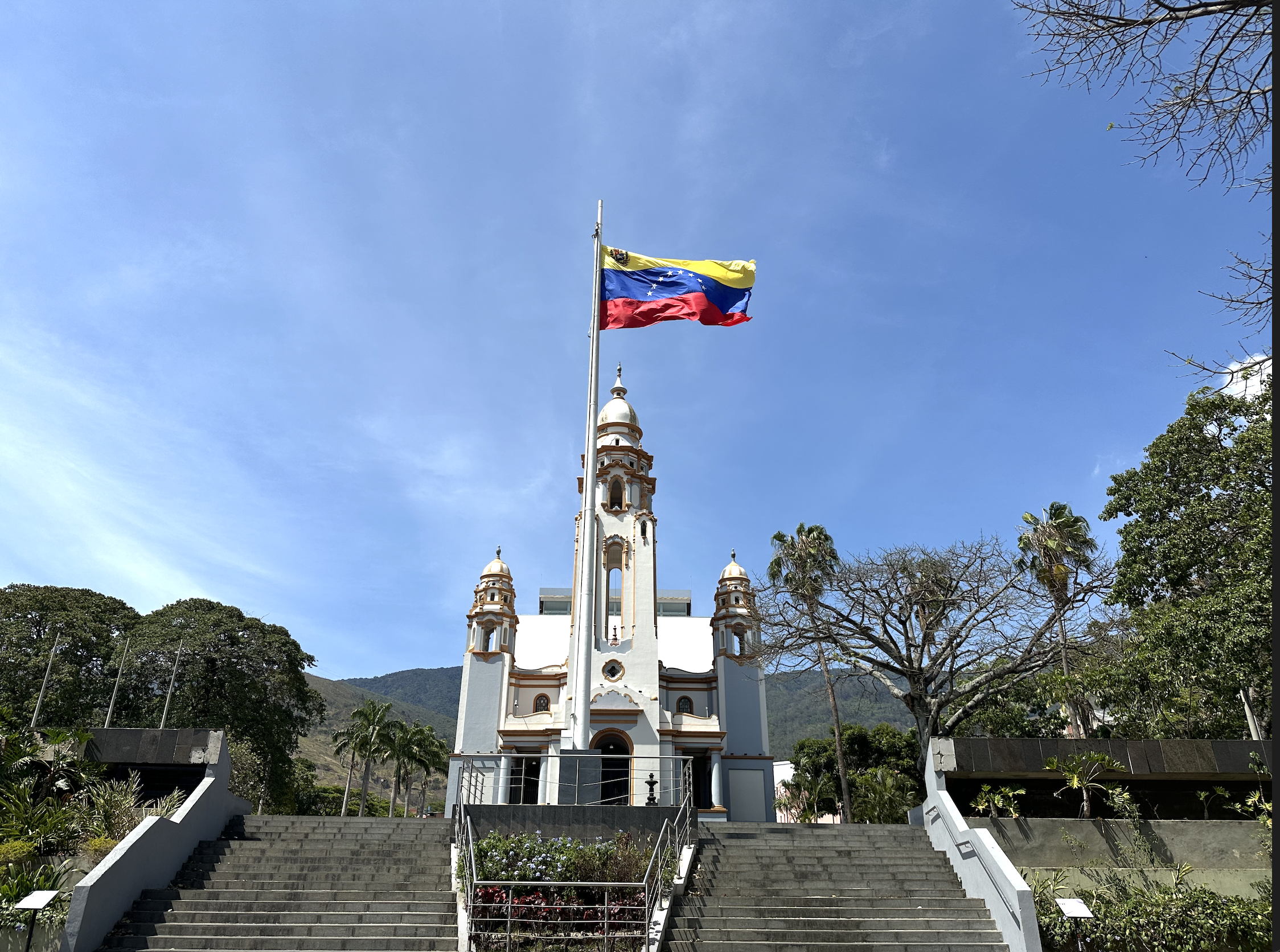
Caracas, Venezuela, May 2024
As you might have gathered from my previous posts, I had an incredible time on my European/Asian holiday. Travelling with Mum around Japan and Poland was both special and fun, creating plenty of cherished memories. My short layover in Istanbul on the way back to Caracas was equally amazing. The Turkish metropolis is simply breathtaking, and if you haven’t been, I highly recommend a visit.
Now, I’m back in Caracas, balancing a busy work schedule with enjoying life here. We’re all gearing up for the Venezuelan national elections, which are crucial not only for the country but also for our work. No matter the outcome, we will need to adjust our programmes and strategies to align with the new landscape.
Next week, I’m off to Panama City for meetings with our regional teams. We’ll be discussing our work in Venezuela and the LAC region for 2025, and I’m really looking forward to it. Plus, travelling to Panama always means reconnecting with old friends, which is a lovely bonus.
Stay tuned for more updates soon!
Time to travel back to the Americas
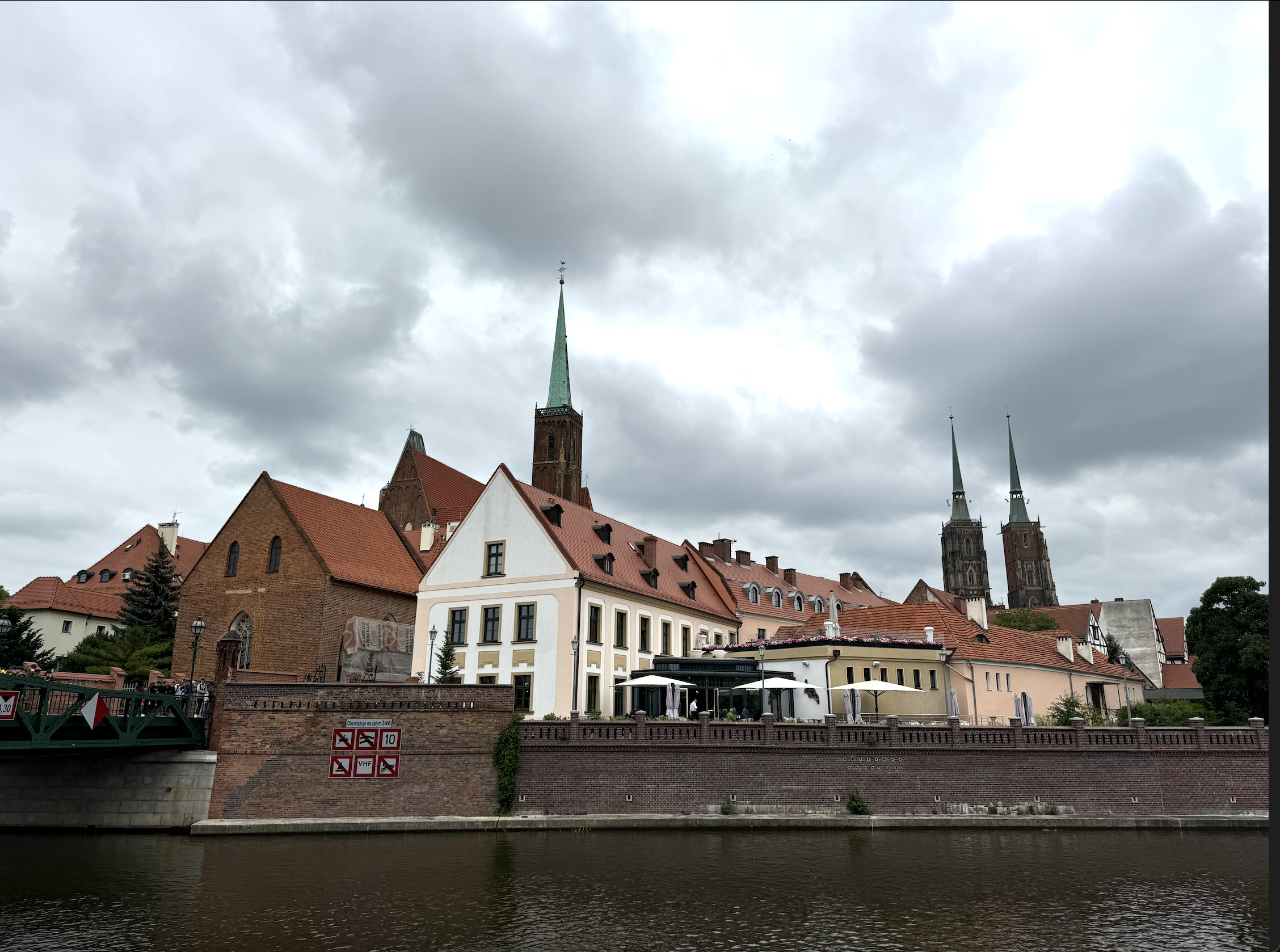
Centre of Wroclaw, Poland, June 2024
The time spent with Mum, family, and friends during this holiday is nearing its end. Tomorrow, I am travelling to Istanbul, where I will stay for a day and a half, before taking a long flight back to Caracas.
I absolutely loved my holiday. Visiting Turkey, Japan, and Poland was wonderful.
Just have a look at these three photo albums:
Turkey and Poland; Japan; Poland
Enjoying time at home
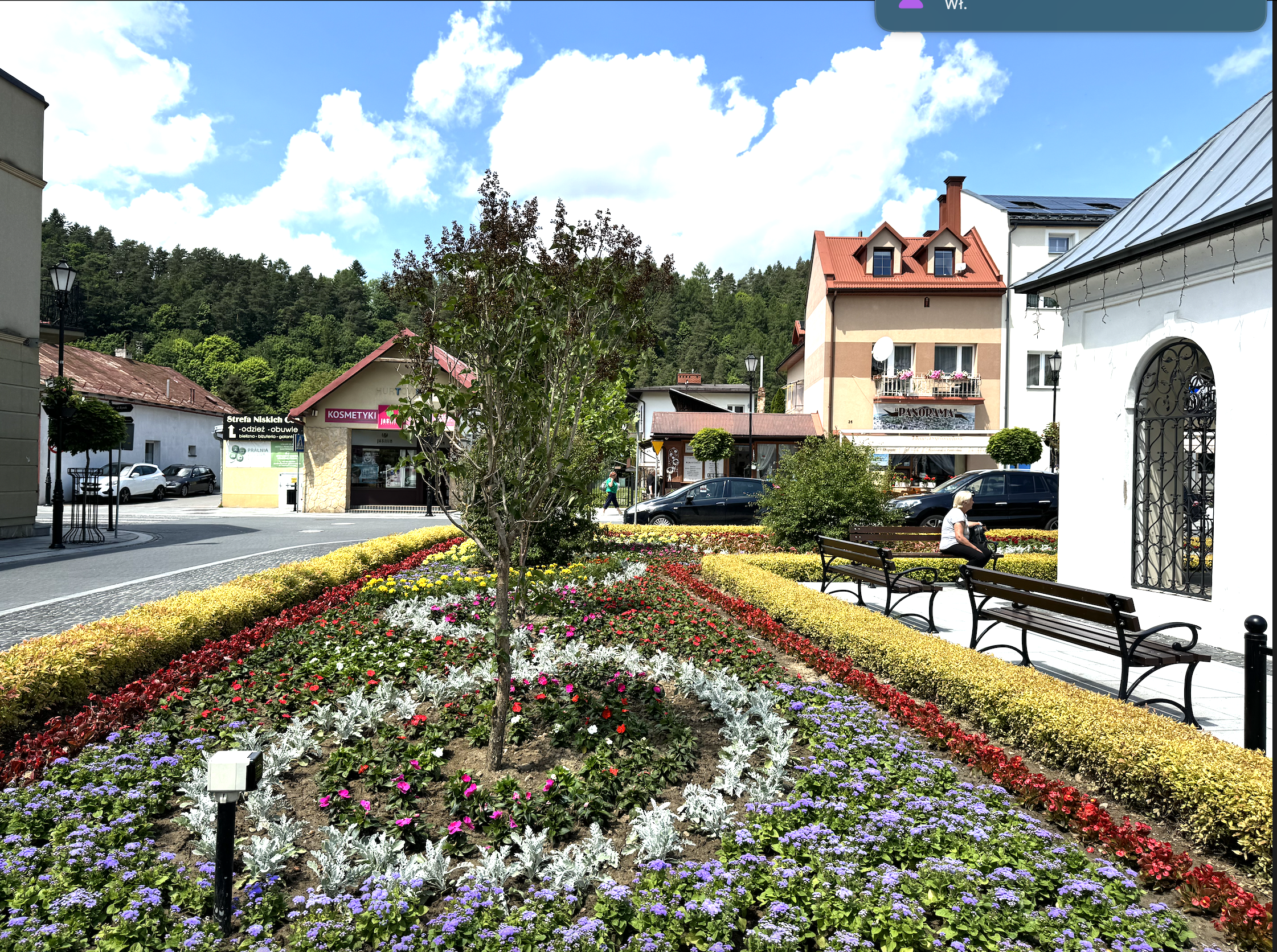
Muszyna, Poland, May 2024
The holiday I am having is amazing and relaxing. After a very pleasant stay in Istanbul and Japan, I am enjoying a wonderful week here in Poland, spending time with Mum, visiting family, and discovering new places (follow this link to the album, the album will include new photos as we travel).
Today, together with Mum, my niece Zosia, and our neighbour – my mother's friend – we will travel to western Poland to visit the amazing Ksiaz Castle and then pay a visit to the famous Wroclaw. We will be travelling for three days. I am really excited and looking forward to it.
At the end of the week, I will be packing and preparing to visit Turkey for two days, just before returning to Caracas.
Enjoying my holiday to the fullest!
